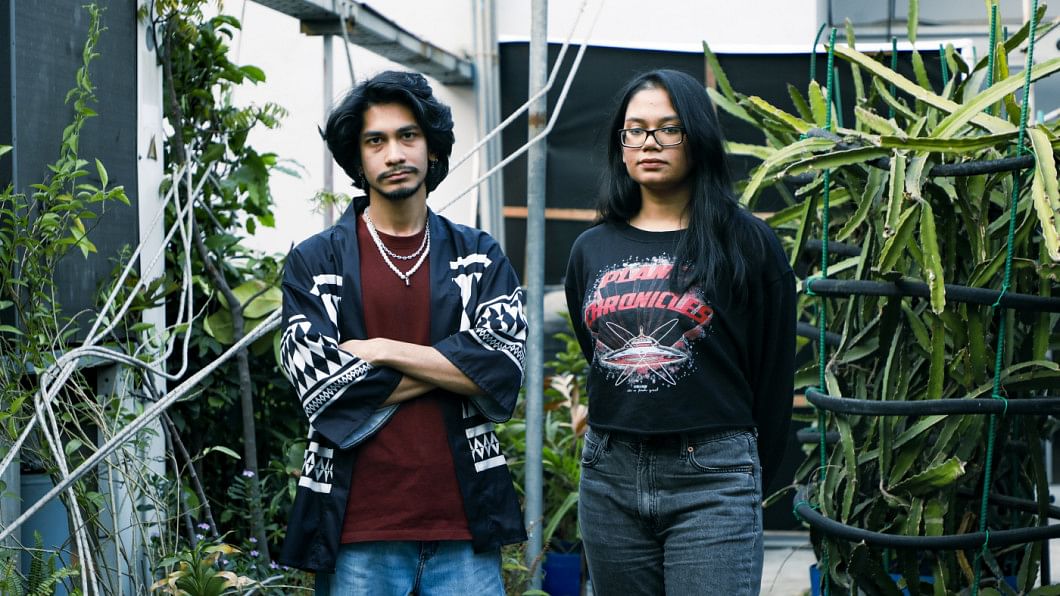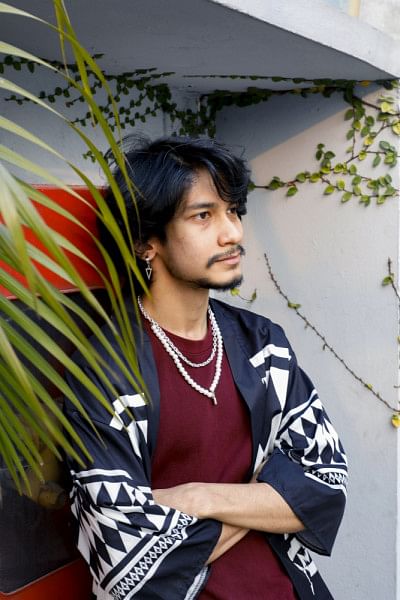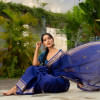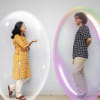Fashion does not need to be gendered

A fight needs to be made to break out of the neatly labelled boxes society tends to put us in. A fight for emancipation from said labels and constructs. In order for people to truly feel comfortable, they must have the right and freedom to express themselves as they see fit, which includes the freedom to express oneself through their choice of clothing.
Perpetuating certain seemingly harmless ideas, such as equating pink to femininity and blue to masculinity allow archaic ideas regarding gender stereotypes to remain prevalent. At a certain point in history, pink was assigned to boys as it was considered to be related to the mother colour of red, "an aggressive and active colour" according to Leatrice Eiseman, a color expert and executive director of the Pantone Color Institute, thereby proving that these ideas are subjective notions and could be open for debate.
The relationship between fashion and gender is often set by society's standards and not scientific facts. Thus, it is not necessary for us as a society to associate articles of clothing and pieces of accessories with a certain gender expression.
The phenomenon of expressing oneself through one's attire is not a new one. The iconic Frida Kahlo, defied normative boundaries and lived her life as a thoroughly radical individual. Her sartorial sensibility ranged from donning men's suits to bright Mexican traditional skirts and blouses, all of which veered from society's standard. Analogous to her paintings, she used fashion as a powerful tool to express herself and her ideologies.
Young people, nowadays, have been steering away from socially perpetuated rules on dressing themselves, and focus more on aspects of self-expression and personal aesthetic.
Dameer Khan, who is a popular musician, shares, "I try to stand out with my personal fashion choices. I like bold colours and interesting silhouettes. I wasn't really into fashion until very recently, and I find it to be a really fun way to express myself. It is a poem you carry with you for the whole day. There is something about fashion, especially eye-catching fashion that excites me as a creator in a way no other medium does."
He adds, "I am still in the process of finding my personal style. I am constrained by my university student budget but that makes things even more fun. I thrift a lot because of this. I also trade clothes with my friends frequently, since it is wasteful to keep buying. I especially trade with my female friends the most as they will have pieces that they've grown bored of, which look totally wild on me."

In Bangladesh and specifically with the older generations, people are a lot more rigid in terms of these choices. When one decides to not conform to age old ideologies, they are often met with scrutiny.
Shadma Akter, a woman in her 50s, opines, "I believe there should be different fashion for men and women. Though men and women are all human beings, they differ in every sense. Men are expected to be rough and tough, while women are viewed as soft."
Azaan Khan, 27, currently working in the US, says, "I faced some constraints in more culturally strict places like Bangladesh. For example, I would have faced issues for having long hair, wearing the colour pink, wearing a shawl or even enjoying wearing "feminine" perfumes. I collect fragrances and am learning how to make them. To think that a smell can be considered feminine or purely masculine is quite ridiculous!"
Sarah Rahman*, 17, also feels uneasy often times when all eyes are set on them, she expresses that it often feels like they are being scanned like an X-ray machine. "Personally, I dress fairly androgynous. Given that I identify as gender-fluid, I dress differently on different days. Some days it's 'hyper-feminine' and others more traditionally masculine. In Dhaka, I get weird looks sometimes when I'm in the men's section looking for clothes."
However, all hope is not lost. In recent times, Bangladeshi youth have been treading the waters of creative clothing and have begun experimenting with their personal style to showcase their individuality.
Padya Paramita, 27 and professor at the University of New Haven, has also experienced criticism regarding her style back at home. She says, "My style is very androgynous and gender neutral. I'm not a very traditionally feminine person, so I feel most comfortable either wearing athleisure outfits at home, and for my work, I like to wear shirts and jeans. Lately, living abroad, I've also gotten into crop tops." She adds, "My extended family doesn't always approve but within reason, my parents have never disapproved of the way I dress."
Dameer also expresses his wish to be inclusive of his Bangladeshi background among his eclectic sartorial sense. "As I progress, I want to incorporate more Bangladeshi elements into my looks, particularly when it comes to our hand-embroidery and block printing abilities." The singer believes that, "...a good way to experiment more if you identify as a man is to try out clothing that society decided was not meant for you."
It is common for young adults in their 20s to experience unfortunate judgement before they find their personal style. However, this only allows them to become more confident and vocal through their journey.
"I think I struggled to find my style for a long time because I did not want to be 'feminine' but I was also looked down on for wearing baggy 'masculine' clothes. But I think my fashion choices would be more androgynous if I wasn't affected by people's comments so much. I'm also really enjoying just accepting my feminine side and exploring my style." shares Ahona Aroni Hassan, 26.
Gender-fluid fashion is nothing but a melange of unique styles. With torchbearers of gender-neutral fashion like Canadian designer Rad Hourani in the industry, it is safe to say that this is the present and the future of modern fashion. There is nothing pre-determined here and one should get the liberty to veer away from societal expectations.
*Names have been changed upon request
References:
1. CNN (January 12, 2018). The complicated gender history of pink.
Ayra Areeba Abid's favourite word is serendipity and she's a sociology geek. Connect with her at [email protected]

 For all latest news, follow The Daily Star's Google News channel.
For all latest news, follow The Daily Star's Google News channel. 










Comments